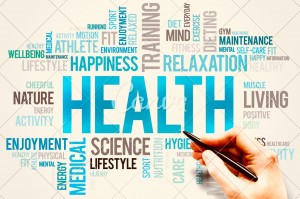Nutrition is becoming more accepted as an intricate part of healthcare. It no longer deals with single nutrient deficiencies, but metabolic functions, nutrient imbalances, and prevention of chronic and degenerative disease. Research studies have proven links with diet and over 30% of cancers, and over 40% of heart disease.
What affects nutrition?
A ‘good diet’ is only part of nutrition. Nutrition is more than just consuming food;
*bio-availability of foods (i.e. is it in the correct form for the body to recognise, absorb and use efficiently)
*individual metabolic characteristics (i.e. how effective are your body processes at breaking down, absorbing, using and excreting)
*how ‘healthy’ is your gut to allow proper digestion
*are the vitamins and minerals reaching all your cells
*are you taking in minerals and vitamins in balanced quantities or are imbalances creating potential deficiencies and/or toxicities
 *are environmental toxins e.g. pesticides/herbicides, plastics, hormones polluting your food and therefore your body
*are environmental toxins e.g. pesticides/herbicides, plastics, hormones polluting your food and therefore your body
*how much stress you are under (this can be emotional or physical, including pregnancy and nursing)
*medications can deplete body stores of nutrient minerals and/or increase the levels of toxic metals
These factors will all influence your nutritional requirements. Health in the body begins at the cellular level, and this is what nutrition really is, and is what I am most concerned with, to promote optimal health and energy. It is much harder to regain health than keep it. Our health is our most precious asset.
Why are vitamins and minerals important?
Minerals comprise approximately 4% of our total body weight. They have been described as “the spark plugs of life”, and this emphasizes the extreme importance of essential minerals for optimum health. Your body needs minerals to make and utilise essential vitamins, for your body to function optimally.
Mineral deficiencies and imbalances are known to affect and be involved with disorders of the cardio-vascular system, gastro-intestinal, musculo-skeletal, neurological, immune and endocrine systems.
Dr Linus Pauling, winner of 2 Nobel prizes, said, “You can trace every sickness, every disease and every ailment to a mineral deficiency.”
It is essential that we use whole-food (bio available) vitamins only, along with the correct minerals for individual needs. The quality of our health depends on the accuracy and quality of our diet and supplementation. It is important that we do not blindly supplement with things we ‘think’ we might need, especially with synthetic supplements, as this can give rise to a cascade of imbalances and toxicities in our biochemistry.
This knowledge has led to the development and continued research, which began over 40yrs ago, of Hair Tissue Mineral Analysis (HTMA).
Why test hair?
As hair is being formed, before it protrudes through the scalp, it is exposed to blood, lymph and intracellular fluids. During this time, it accumulates constituents present in that environment, particularly the minerals, but also toxins. As the cortex of the hair shaft hardens, these constituents are encased within, and can then be tested to see the internal metabolic environment and used to determine mineral status within the body. It can give us a ‘snap shot’ of energy and stress patterns within the body over the last 2-3 months. It cannot be used to ‘diagnose’ a specific condition, but it can show potential pathways towards a disease state, help you to understand your symptoms, and ultimately give you a holistic approach to remedy deficiencies and/or toxicities.
HTMA, when it’s interpretation is properly analysed, and the antagonistic and synergistic relationships to other minerals are understood, can also be used to understand the relationship of minerals to vitamins, and therefore it can assess for potential vitamin imbalances too. Vitamins cannot be produced, or work without minerals; So a mineral imbalance can potentially lead to a vitamin imbalance that it is synergistically or antagonistically linked to.
Why not just test the blood or urine?
As blood is homeostatic, it will always strive to stay in balance, even at the cost of other tissue/cellular concentrations, and it can fluctuate from hour to hour. The fact that most minerals are intracellular, means they are not always found in the blood, therefore, blood tests are not a reliable way of determining mineral status. (For example, less than 1% of your body magnesium is found in the blood. It is mainly found in the bones or within the mitochondria in the cells. Red blood cells do not have mitochondria, therefore, your magnesium status cannot be accurately tested for by blood test). Blood tests also can have wide ranges of ‘normal’, so will not always identify the problem, despite you having symptoms.
Equally, urine tests will only show what the body is excreting and not what is being stored within the body. Therefore these tests, although useful, will not be as pertinent in determining mineral status as a HTMA.
Contemporary medical education and training are disconnected from this vital understanding of the mineral system. Therefore many doctors are not equipped to recognise and understand the underlying mineral problems of most of their patients.
Why is HTMA useful before, during and after pregnancy?
Being as healthy as you can be before you get pregnant, will not only increase the likelihood of you getting pregnant, but will also help to minimise potential problems such as miscarriage, hypoglycaemia, hypertension, post-partum depression etc.
HTMA can be used to evaluate the nutritional status and toxic metal exposure of the mother, the developing foetus, and equally to a breast-fed baby, through testing of the mother’s hair. According to Dr. Robert Thompson MD, author of ‘The Calcium Lie’, “A baby will be born with a near exact finger print of its mother’s mineral status, so if the mother’s mineral status is poor, the baby’s will be too”. Babies who have been born with jaundice, experiencing colic/reflux etc. can be displaying signs of these mineral imbalances.
Pregnant women lose approximately 10% of their total mineral supply to their baby. That means that she will lose about 4 pounds of minerals to her baby with each pregnancy. If she is already imbalanced before pregnancy, then this will further deplete her, making her potentially susceptible to other physical and mental health issues.
How do I get the test?
I recommend Trace Elements Inc. (TEI). TEI labs are the most well established, and were set up by one of the original researchers of HTMA, Dr David L Watts. They have tested over a million samples with extreme accuracy, and have very strict protocols on how they handle and test the samples. They do not wash the samples, unlike other labs, as this ensures that no minerals are lost from the sample prior to analysis. They produce a graphical report, which I have been trained to interpret, in order to not only explain potential mechanisms of your symptoms, but to tailor an individual and specific nutritional/supplement programme to optimise your health and energy.
The kit contains a laboratory form (to be completed by you), full instructions on how to take the sample, cardboard scales for weighing the hair sample, an envelope for the sample, and a postal envelope to send the sample directly to the lab.
To get your kit, please contact me at geri.orawe@ntlworld.com
What happens after I send off my sample?
I will confirm with you when the lab receives your sample. On receipt of your HTMA results, I will then contact you to arrange your individual consultation. I will also send you a brief health questionnaire to be completed before consultation, to use in conjunction with your results.
How much does it cost?
The cost is £200 – this includes your HTMA lab results, an hour appointment to discuss the results, an emailed personal analysis and list of supplement recommendations, email support for 2 months for general questions and updates about your plan, and a general guide of dietary recommendations and health tips to incorporate into your regimen.
Appointments can be done in person at Bushey Osteopathic Clinic, or by phone or FaceTime, by prior arrangement.







